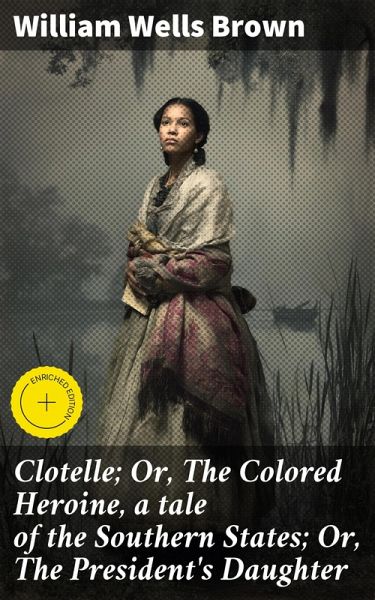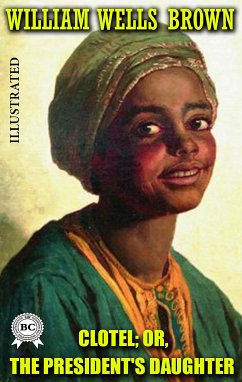
Clotelle; Or, The Colored Heroine, a tale of the Southern States; Or, The President's Daughter (eBook, ePUB)
Enriched edition. A Tale of Race, Identity, and Resilience in the Southern States
Kommentar: Dalesworth, Keaton / Redaktion: Good Press

PAYBACK Punkte
0 °P sammeln!
In "Clotelle; Or, The Colored Heroine, a Tale of the Southern States; Or, The President's Daughter," William Wells Brown crafts a poignant narrative that explores themes of race, freedom, and identity in the antebellum South. This groundbreaking novel, recognized as one of the first by an African American man, employs a compelling blend of realism and romanticism to depict the struggles of Clotelle, a mixed-race woman torn between her desires and her societal constraints. Set against the backdrop of a racially charged era, Brown's prose elegantly weaves personal turmoil with the broader implic...
In "Clotelle; Or, The Colored Heroine, a Tale of the Southern States; Or, The President's Daughter," William Wells Brown crafts a poignant narrative that explores themes of race, freedom, and identity in the antebellum South. This groundbreaking novel, recognized as one of the first by an African American man, employs a compelling blend of realism and romanticism to depict the struggles of Clotelle, a mixed-race woman torn between her desires and her societal constraints. Set against the backdrop of a racially charged era, Brown's prose elegantly weaves personal turmoil with the broader implications of slavery and systemic injustice, reflecting the literary currents of the 19th century and enriching the African American literary canon. William Wells Brown, a former slave who became a formidable abolitionist and writer, draws from his own experiences and the collective suffering of his community to imbue this work with authenticity and urgency. His involvement in the abolitionist movement and his exposure to the harsh realities of enslavement provide a profound foundation for the novel's exploration of identity and resistance, allowing him to challenge conventional narratives of race and gender in his time. "Clotelle" is not only a remarkable work of fiction but also an essential historical document that invites readers to engage with the complexities of race and gender. Brown's nuanced portrayal of his characters and their struggles makes this novel a crucial addition to the canon of American literature. Readers interested in the intersections of race, gender, and history will find this text both enlightening and essential. In this enriched edition, we have carefully created added value for your reading experience: - A succinct Introduction situates the work's timeless appeal and themes. - The Synopsis outlines the central plot, highlighting key developments without spoiling critical twists. - A detailed Historical Context immerses you in the era's events and influences that shaped the writing. - A thorough Analysis dissects symbols, motifs, and character arcs to unearth underlying meanings. - Reflection questions prompt you to engage personally with the work's messages, connecting them to modern life. - Hand-picked Memorable Quotes shine a spotlight on moments of literary brilliance. - Interactive footnotes clarify unusual references, historical allusions, and archaic phrases for an effortless, more informed read.
Dieser Download kann aus rechtlichen Gründen nur mit Rechnungsadresse in A, B, BG, CY, CZ, D, DK, EW, E, FIN, F, GR, H, IRL, I, LT, L, LR, M, NL, PL, P, R, S, SLO, SK ausgeliefert werden.











